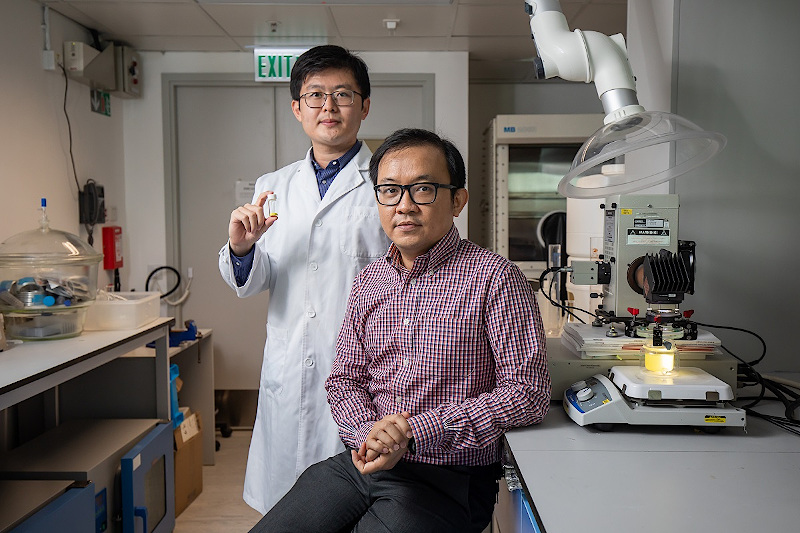New method to introduce efficient water splitting for hydrogen production at low voltage
Metal oxides are a promising catalyst for photoelectrochemical (PEC) water splitting to produce hydrogen as alternative energy. However, their effectiveness is restricted at low voltage. A research team led by scholars from City University of Hong Kong (CityU), Australia and Germany successfully mediated the poor charge carrier transport at low voltage by adding phosphorus to a metal oxide catalyst, which reduced energy losses during water splitting. The findings offer a potential option for achieving carbon neutrality.
The research was co-led by Professor Yun Hau Ng, Associate Professor of the School of Energy and Environment (SEE) and researchers from Australia and Germany. Their findings were published in the scientific journal Nature Communications, titled “Low-bias photoelectrochemical water splitting via mediating trap states and small polaron hopping”.
For more details, please refer to CityU News.
